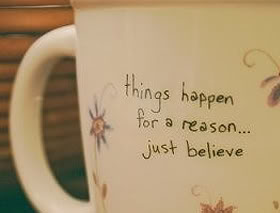 It seems the whole world is online these days. Well, except for that one, dear woman in my congregation who talks about the internet as if it’s a fad she just has to wait out. But these days, she is the exception.
It seems the whole world is online these days. Well, except for that one, dear woman in my congregation who talks about the internet as if it’s a fad she just has to wait out. But these days, she is the exception.
Most everyone who has access to the World Wide Web, goes there. As well they should! There are so many benefits that the internet affords us and so many positive ways we can use it. I personally benefit from online education, from staying connected with long-distance friends through email and social media, from the privilege of working at home while I have young children, from blogging as an outlet for my creativity, from Googling anything and everything that piques my interest, to name a few.
But, as with anything else, there are pitfalls unique to the internet as well: Information isn’t always accurate. There are countless distractions (ooh, something shiny!). Cyber bullying is a real and terrible thing. We are a lot less careful with our words when we don’t have to look someone in the eye. And we are all aware of much worse that goes on and through computer screens. I personally struggle with wasting valuable time chasing distractions on my screen. For example, I confess that part of the time I had set aside to write this post, I used to shop online. Don’t get me wrong, I love the convenience of online shopping, especially come the holidays, but I did not have the time or need for it today. I was merely procrastinating. Don’t follow my example; it’s what NOT to do!
The internet is a tool. Tools are amoral—not inherently good or evil. Their goodness or badness is entirely dependent upon how we, the users, use them. It’s on us, Church!
We have to keep tools in their proper priority, establish and maintain healthy boundaries, and engage with others kindly. Online shopping isn’t the internet’s fault, it’s mine! The question is not, “Should one be online?” But rather, “How should one be online?” We can’t blame the internet for the poor choices that are made online. Nor can we condemn them, especially if we aren’t willing to be part of the solution. It’s worth the work to learn how to appropriately use this tool because the world needs more of the Church online.
Speaking of, I need your advice about something. I never quite know what to do when I scroll across bad theology after bad theology on my Facebook mini-feed. You know the ones I mean—those memes that say something incredibly sappy and all-together not true. Here are just three examples:
- If you repost this post about Jesus, you will be blessed.
First, I don’t think “blessing” means what you think it means. And second, confessing Jesus before others is a lot more than hitting “post” or “like.” - That God is working all things in the universe for my personal benefit.
We must be careful not to over-personalize every Bible verse we read. - That everything happens for a reason.
I disagree. But the opposite may be true: That God is good and able to bring reason from everything that happens.
What is a Christian supposed to do with this? Typically, I roll my eyes and keep scrolling, assuming that Facebook just isn’t the appropriate place for theological discussion. But am I just being lazy or cowardice? I mean, if there are bad theologies on Facebook, shouldn’t there also be some good? Maybe people need an alternative. And maybe, in doing so, we can demonstrate how to engage in kind and loving ways. What do you think? Please comment below with your thoughts—how do we best engage the bad theologies and offer the good in social media? I just don’t know the right answer.
What I do know is that we have been called to leverage every resource available to us for the Kingdom of God. And the internet is no exception.
By all means, post, like and share to your heart’s content. Just consider the theology you’re endorsing in doing so. And be aware of what you’re consuming online, whether blogs, articles, or anything else. Be sure to filter everything through your uniquely Christian perspective. Because that’s the one the world needs so very badly. While there are lots of great sources online, there just isn’t enough that’s mainstream. And there won’t ever be, if we don’t put it there. The Good News is meant to be shared. Even, and maybe especially, online.
 Leah Hartman is a stay-at-home-mom who serves part-time as the Coordinator of Young Adult Ministry at First United Methodist Church in Winfield, KS and an Adjunct Faculty for Southwestern College Professional Studies. She loves people and learning, reading and writing, music and dance, coffee and laughing. She blogs at leah-hartman.com. Leah lives in Geuda Springs, KS with her husband, Caleb, and their daughter, Claire.
Leah Hartman is a stay-at-home-mom who serves part-time as the Coordinator of Young Adult Ministry at First United Methodist Church in Winfield, KS and an Adjunct Faculty for Southwestern College Professional Studies. She loves people and learning, reading and writing, music and dance, coffee and laughing. She blogs at leah-hartman.com. Leah lives in Geuda Springs, KS with her husband, Caleb, and their daughter, Claire.







I agree. Good theology needs to be put out there too. I guess I’m cynical because I’m just glad to see Jesus there. I’ve learned not everyone thinks nor agrees with my thoughts and I’m just glad they acknowledge Jesus as their Savior.
Thank you for your post. Whether and how to respond to bad online theology is tricky to navigate. I am reminded of two biblical proverbs, which occur side by side.
Proverbs 26:4: “Don’t answer fools according to their folly, or you will become like them yourself.”
Proverbs 26:5: “Answer fools according to their folly, or they will deem themselves wise.”
The question of whether and/or how to respond to “foolish” statements, including foolish theology, is as old as our theological heritage. And these juxtaposed proverbs highlight the inherent difficulty in doing so. If we feel we can do better than the theology that fills our news feeds, we are responsible for raising the level of conversation. Otherwise, foolish Facebook posts and the like will be deemed wise by virtue of being the only thing available. At the same time, in doing so we run the risk of losing our wisdom and becoming foolish ourselves. It’s no coincidence that elsewhere in the wisdom literature, silence is associated with wisdom and frequent speech associated with foolishness.